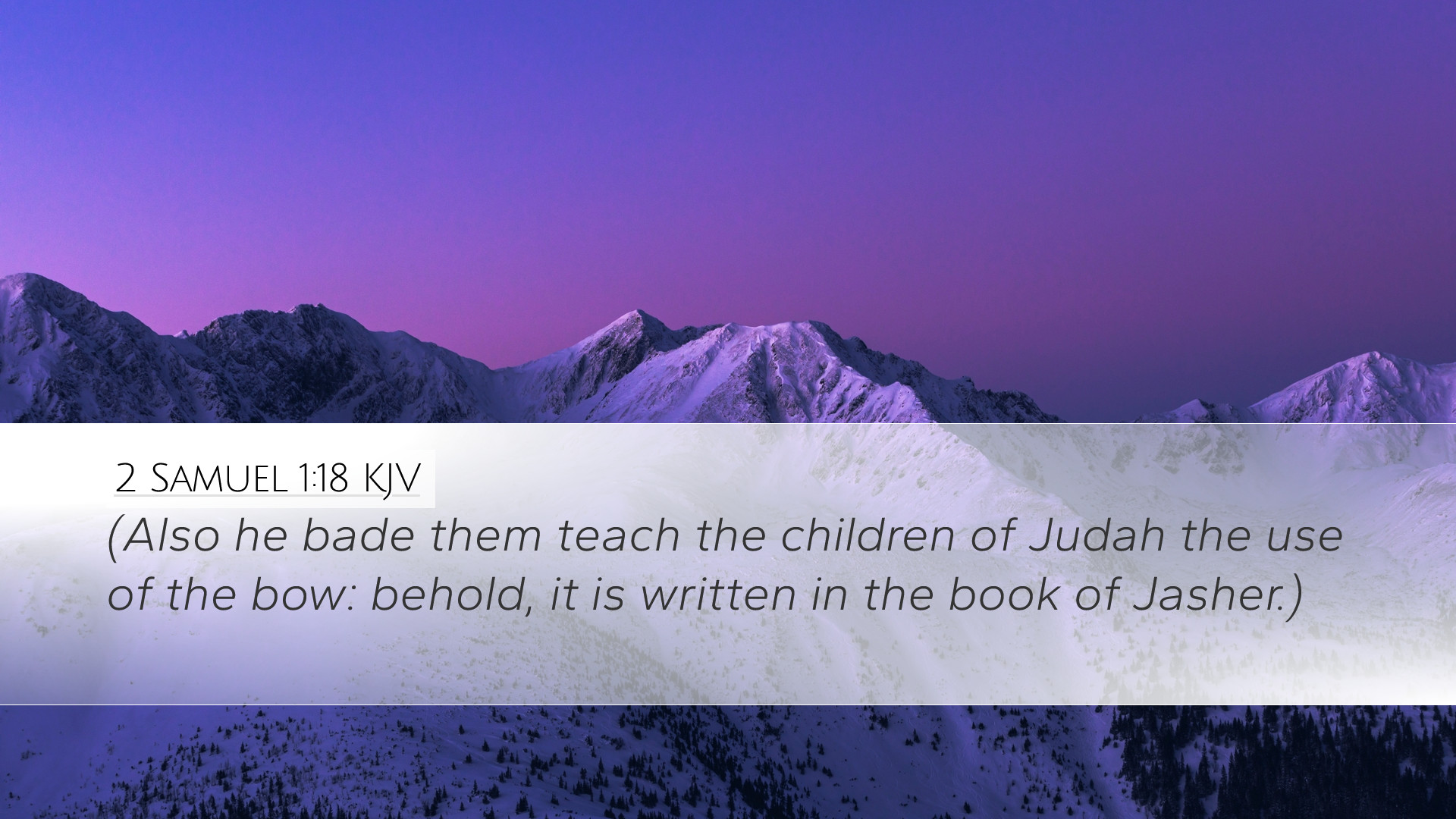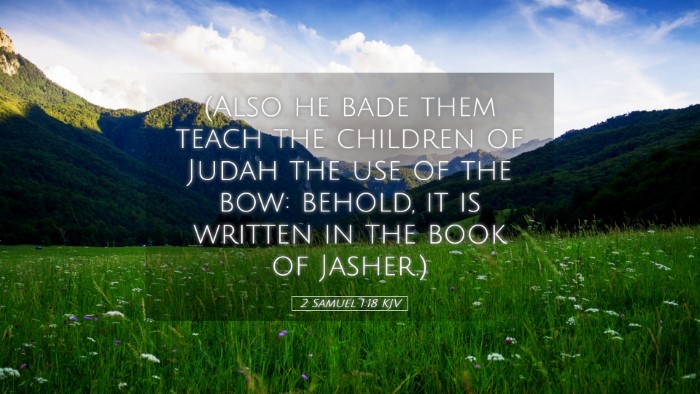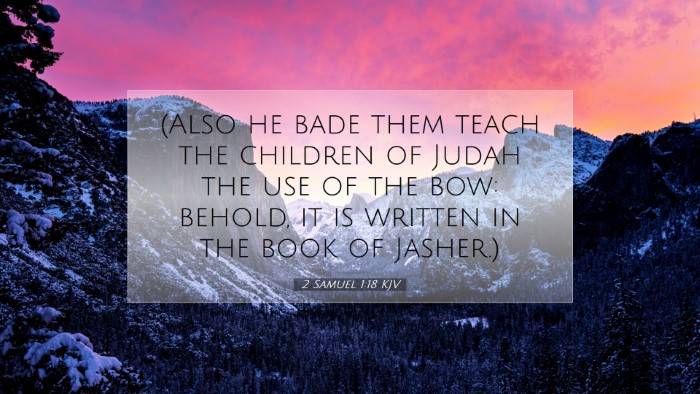Commentary on 2 Samuel 1:18
In this passage, we find the poignant moment where David mourns the death of Saul and Jonathan, reflected poignantly in the context of their relationship and the nation of Israel's turmoil. This verse not only marks a personal loss for David but also a tumultuous period in the history of Israel.
Text of 2 Samuel 1:18
"And he bade them teach the children of Judah the use of the bow: behold, it is written in the book of Jasher."
Historical Context
The historical backdrop of this verse is crucial to understanding its significance. After the tumultuous reign of Saul, Israel is now faced with a transition of leadership. David, having received the news of Saul and Jonathan’s deaths, seeks to honor their legacy and ensure the next generation understands the art of warfare, specifically through the use of the bow.
Commentary Insights
Matthew Henry’s Commentary
Matthew Henry points out that David’s reference to teaching the children of Judah the use of the bow signifies both a physical and symbolic preparation for the challenges ahead. As the leader, he recognizes the importance of readiness in battle, especially after the recent conflict. Henry emphasizes that the bow symbolizes strength, readiness, and the need for skill in leadership.
Application for Leaders
Henry notes that leaders in any context should prepare those under them. For pastors and theologians, this passage is a reminder of the importance of equipping the faithful with the necessary tools and skills for spiritual warfare, which can include knowledge of scripture, prayer, and moral integrity.
Albert Barnes’ Commentary
Albert Barnes elaborates on the significance of "the book of Jasher," which is a lost work that chronicled the heroic deeds of Israel’s leaders. Barnes interprets this as David’s acknowledgment of a rich heritage of valor and loyalty. By calling attention to this book, David is reinforcing the cultural memory of Israel, ensuring that future generations understand and appreciate the sacrifices made by Saul and Jonathan.
Significance of Cultural Memory
A critical takeaway from Barnes’ commentary is the idea of preserving history and memory within the faith community. For pastors, this highlights the importance of teaching the stories of faith—both heroic and cautionary—from scripture and the life of the church.
Adam Clarke’s Commentary
Adam Clarke provides insight into the act of teaching the children of Judah the use of the bow, viewing it within the broader narrative of preparing for future conflict. Clarke underscores that this preparation is two-fold: it embodies a physical readiness for battle and a spiritual preparedness to uphold justice and righteousness in the face of war.
Spiritual Implications
Clarke’s interpretation encourages a dual emphasis on equipping believers not only for physical challenges but also for spiritual vigilance. In modern ministry, this may translate into creating programs that nurture both physical and spiritual warfare against present-day evils, thus ensuring that each believer is adept in both realms.
Key Themes
- Leadership and Preparation: The call to teach the next generation signifies the responsibility leaders have to educate and prepare their followers for the challenges they will face.
- Cultural Heritage: The reference to the book of Jasher emphasizes the importance of remembering and honoring one’s history.
- Balanced Training: The dual focus on physical and spiritual preparation can inspire modern readers to foster well-rounded discipleship.
Conclusion
In conclusion, 2 Samuel 1:18 serves as a rich text for reflection on leadership, the importance of cultural memory, and the need for holistic preparation in faith communities. As we aspire to lead and teach, may we always take heed of David's example, equipping our followers both in skill and spirit, drawing from our shared history and faith to bolster our communal strength.


